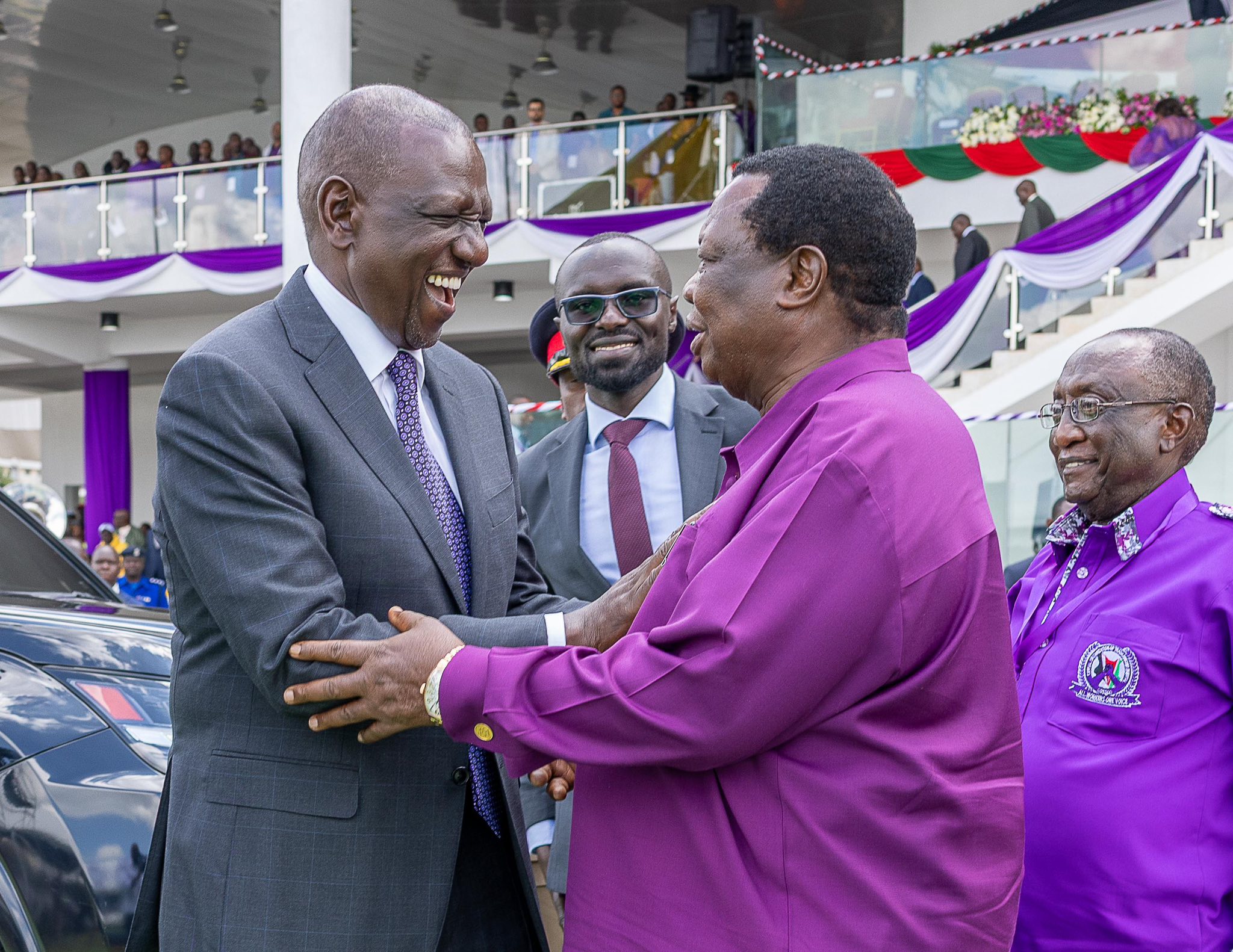

President William Ruto has asserted that his tough yet necessary decisions have steered the country out of economic turmoil that once threatened its very fabric.
He also took aim at the opposition, accusing them of scheming his downfall, and urged them to hold off, stating that it was a waste of time and energy to engage in politics with more than two years remaining before the next elections.
Speaking during the 60th Labour Day celebrations at Uhuru Garden in Nairobi on Thursday, the President said his relentless efforts—sometimes unpopular—had successfully revived the economy.
“If I had not made the right decisions in 2022, if I had not stopped the subsidies on fuel, unga, and other items, we would not be talking today about Kenya being the sixth-largest economy in Africa,” Ruto said.
Last month, the International Monetary Fund (IMF) and the World Bank projected that Kenya’s economy would become the largest in East Africa by 2025, surpassing Ethiopia, which has long held the top spot.
According to the IMF, Kenya’s Gross Domestic Product (GDP) is expected to reach $132 billion (Sh17 trillion) in 2025, surpassing Ethiopia’s $117 billion.
The President said this projection affirms his administration’s sound economic decisions, despite concerns over the severity of those measures.
“I promise the people of Kenya that I will always make the right decisions to ensure Kenya progresses. Sometimes these decisions may not be popular, but they are the right choices that will change the destiny of our country,” he said.
Prime Cabinet Secretary Musalia Mudavadi said the latest report positioning Kenya’s economy as one of the fastest growing in Africa reflects the country’s stable political leadership.
“When we talk about being the sixth largest economy, that is not something that happens in an environment of turmoil, conflict, or political instability,” Mudavadi said.
The President also highlighted the initiatives central to his Bottom-Up Economic Transformation Agenda, which have contributed to the country's economic growth.
“These pillars are tangible, impactful engines of growth that are already transforming lives and livelihoods across Kenya,” he said.
Ruto said his administration has worked to make farming more profitable, stabilise farmer incomes, and ensure national food security. The reduction in fertiliser prices has led to a 40 per cent surge in maize production, boosting farmers' earnings.
“Reforms in the coffee sector, including eliminating inefficiencies and corruption, and streamlining the Nairobi Coffee Exchange, have raised prices from Sh50 to between Sh110 and Sh150 per kilogramme,” he said.
The President said reforms in the sugar sector have revitalised the industry, leading to record production, better incomes, and bonus payouts for farmers, while also creating thousands of new jobs.
“I recall with deep personal satisfaction seeing Mama Redempta Makokha of Mumias receive a bonus cheque of Sh80,000 in January—money she proudly used to advance her well-being,” he said.
The President also highlighted his administration's affordable housing programme, which has not only addressed the housing crisis but also contributed to economic growth.
By the end of April, the programme had created more than 250,000 jobs across various sectors, including architecture, engineering, urban planning, masonry, carpentry, plumbing, and electrical work, while reinvigorating local economies.
In support of micro, small, and medium enterprises (MSMEs), Ruto pointed to the Hustler Fund, which he said has transformed the sector and deepened financial inclusion, promoting entrepreneurship at scale.
“Our commitment to unlocking the potential of this sector is resolute,” he said.
The President said his administration had secured more than 200,000 jobs for Kenyans abroad and planned to strengthen efforts through targeted recruitment and bilateral labour agreements.
“We have recruited 76,000 teachers, with an additional 20,000 set to be hired in January next year,” he added.
In direct response to opposition claims of making him a one-term President, Ruto urged critics to hold their horses.
“The election is coming in 2027, and Kenyans will decide. For now, let us partner. Let everybody do their work where they are employed,” he said.
Ruto made these remarks days after key opposition leaders, including his former deputy, Rigathi Gachagua, met in Nairobi to strategise.
The President also discussed the Finance Bill 2025, saying it had been carefully crafted to stimulate economic growth, enhance efficiency, improve competitiveness and expand opportunities.
He said the Bill includes provisions designed to offer targeted relief to both businesses and workers and support the spirit of enterprise and productivity.
“Specifically, the Bill seeks to improve workers’ take-home pay by allowing them to apply eligible tax reliefs and exemptions directly when calculating Pay As You Earn (PAYE),” Ruto explained.
This is a significant departure from the current system, where such reliefs can only be claimed from the Kenya Revenue Authority.
Furthermore, all pensions and gratuity payments for the public and private sectors will now be tax-exempt.
Small businesses will also benefit from simplified tax treatment, allowing them to fully deduct the cost of everyday equipment in the year of purchase, eliminating unnecessary delays in accessing tax relief.

















